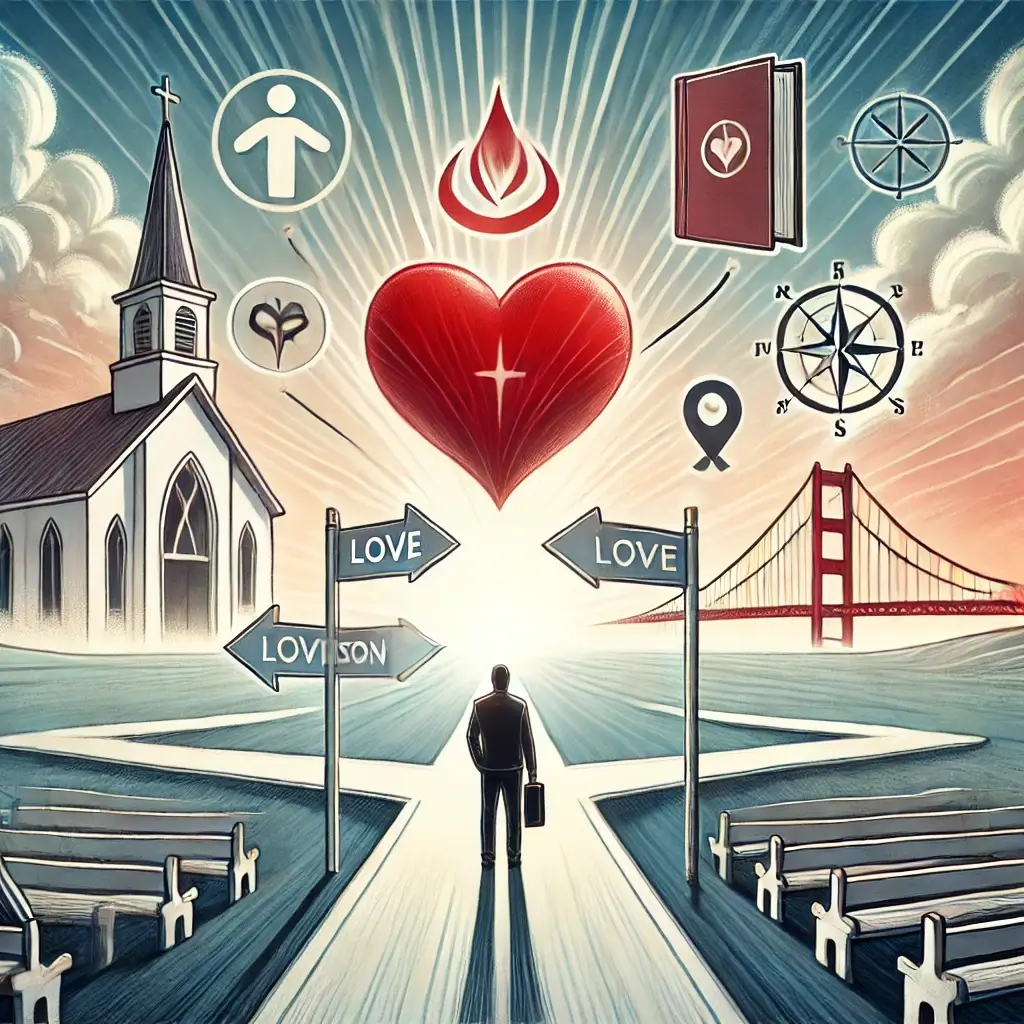Navigating Identity Shifts Through Religious Transformation
Religious changes often catalyze profound shifts in identity, prompting individuals to reconsider foundational aspects of their lives, including romantic relationships. For many, dating post-religious change becomes a journey of rediscovery—one where old paradigms are replaced with fresh perspectives. This transformation, while enriching, can also be fraught with uncertainties as individuals seek partners who resonate with their evolving values.
The Challenge of Reconciling Past and Present Beliefs
A 2023 Gallup survey reported that 44% of individuals navigating faith transitions faced difficulties reconciling their past and present beliefs in romantic contexts. These struggles often reflect deeper questions about compatibility, long-term goals, and shared values. At its core, dating after a religious transformation is about finding balance—between honoring one’s past, embracing the present, and envisioning a harmonious future with a partner. This article offers a fresh perspective, blending research, current trends, and actionable strategies to help individuals thrive in this unique phase of life.
Beyond Dogma: A New Understanding of Relationship Compatibility
Compatibility in the context of religious change is less about shared dogma and more about mutual understanding. Dr. Eleanor Hayes’ research (2024) in the International Journal of Love and Faith highlights:
Partners with differing spiritual beliefs who engaged in continuous dialogue had a 60% higher likelihood of long-term relationship success (Hayes, 2024).
Emotional intimacy, driven by open conversations, was a stronger predictor of relationship stability than shared religious practices (Hayes, 2024).
Acceptance of each other’s unique spiritual journeys correlated with higher satisfaction levels (Hayes, 2024).
Prioritizing Emotional Alignment in Relationships
These findings underscore the importance of prioritizing emotional alignment over rigid compatibility metrics. For instance, couples who focus on shared aspirations like kindness, mutual respect, and family goals often navigate religious differences more effectively than those anchored solely in shared practices.
Finding Your Path in Today’s Diverse Dating Landscape
Dating in today’s multicultural and spiritually diverse society offers a spectrum of opportunities for those embracing new perspectives. Dr. Laura Kemp’s 2024 study on post-religious transitions recommends actionable steps to thrive in this environment:
Embrace Vulnerability: Sharing your spiritual journey, including doubts and discoveries, fosters authenticity and deepens connections (Kemp, 2024).
Build Inclusive Networks: Join interfaith or spiritual exploration groups to meet individuals who understand the nuances of navigating faith changes.
Use Technology Wisely: Dating apps like OKCupid and Bumble increasingly cater to users prioritizing values and personality over religious alignment.
Set Clear Intentions: Clearly communicate your expectations and boundaries to potential partners early in the dating process.
Real-World Applications of Inclusive Dating Strategies
For example, a participant in Kemp’s study noted that joining a local interfaith book club allowed them to meet people with diverse beliefs while also engaging in meaningful discussions. This approach not only broadened their social circle but also helped them clarify their own values.
The Evolution of Cultural Attitudes Toward Spiritual Diversity
The broader cultural landscape is also evolving to accommodate diverse spiritual journeys. Media representations of interfaith relationships, such as films and books celebrating love beyond traditional boundaries, have gained traction in recent years. Similarly, events like the 2024 World Interfaith Relationship Forum highlight the growing acceptance of spiritual diversity in romantic contexts.
Finding Community Through Shared Experiences
Social media platforms further amplify these trends, creating spaces for individuals to share their stories of navigating relationships amidst faith transitions. These narratives often inspire others, fostering a sense of community and shared resilience.
Intentional Approaches to Relationship Building
Thriving post-religious change involves intentionality, adaptability, and a willingness to grow. Relationship expert Dr. Susan Grant (2024) provides the following strategies:
Focus on Core Values: Identify and prioritize values that remain central to your identity. Use these as a foundation for evaluating potential partners (Grant, 2024).
Engage in Shared Activities: Participate in activities that align with your evolving beliefs, such as meditation retreats or community service projects.
Cultivate Emotional Intelligence: Develop the ability to navigate complex emotional landscapes, both within yourself and with others.
Seek Professional Guidance: Therapists or coaches specializing in spiritual transitions can offer tailored advice for managing relationship dynamics.
Embracing New Possibilities in Love and Connection
Dating after a religious change is an opportunity to redefine what love and compatibility mean in the context of your evolving identity. By prioritizing authenticity, embracing vulnerability, and seeking meaningful connections rooted in shared values, individuals can build fulfilling relationships that honor both their past and their aspirations for the future.
A Future of Deeper Understanding and Connection
As societal attitudes continue to shift, the possibilities for love beyond traditional boundaries expand, encouraging deeper connections and greater understanding. Navigating this transformative phase with intentionality and openness can lead not only to successful relationships but also to personal growth and self-discovery.
